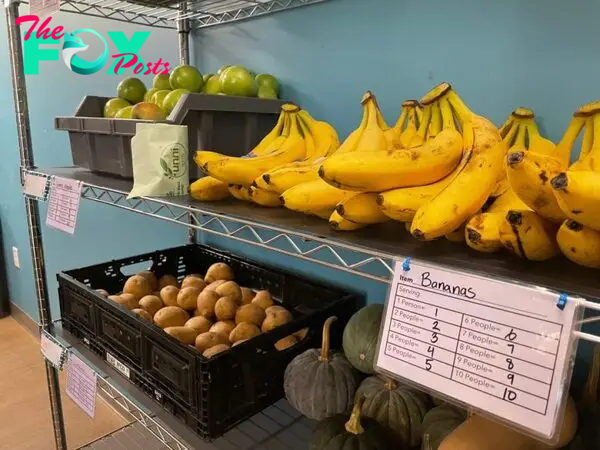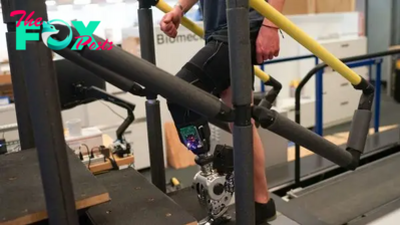Health
Good food and stable housing have huge effects on health. So Colorado Medicaid wants to cover those, too.
For people who can’t afford safe housing or nutritious food, doctor visits and hospital stays can only do so much to fix health problems.
That’s the premise behind a plan to allow Colorado’s Medicaid program, which provides government-funded Health insurance for people with low incomes, to cover the costs of housing and nutrition services.
The outside-the-box idea catching on across the country is a recognition that health care happens beyond the doctor’s office and that taxpayers might actually save money long term if people had the means to stay healthy.
A new law recently signed by Gov. Jared Polis directs the Colorado Department of Health Care Policy and Financing, which includes the Medicaid program, to explore asking the federal government for permission to cover food and housing. The department has already started the process, seeking public comment this month on a proposal to cover those social needs for three groups of people: those who are homeless or at risk of homelessness, people with disabilities who are transitioning out of facilities, and young people aging out of foster care.
Among the agencies watching closely is Project Angel Heart, a nonprofit that delivers about 2,000 meals per week to Coloradans with severe illnesses. Every meal is tailored, on average, 80 different ways.
Clients who have renal disease shouldn’t eat tomatoes, so those are swapped out for a roasted red pepper blend, for example. Other clients get gluten-free, or vegetarian, or heart-healthy options.
According to Project Angel Heart’s data, the medically tailored meals — delivered frozen up and down the Front Range — help keep people out of the hospital. Hospital admissions among people receiving meals dropped by 13%, according to a 2018 study. Overall medical costs for people with congestive heart failure, pulmonary disease and diabetes dropped by 24%.
☀️ READ MORE
Do Colorado miller moths eat clothing?
These were the most common causes of death in Colorado in 2023
Demographics are changing quickly in America but not in the outdoors. Enter a new Colorado excursion company.
The meals are free to clients and mostly paid for through donations and grants to Project Angel Heart, which aims to serve 750,000 meals to about 5,000 people this year. As of now, only one to two people per month meet the qualifications for Medicaid coverage of meals — certain people leaving a hospital can get meal services for up to 30 days.
One Project Angel Heart client in the far southeastern corner of Colorado gets his meals shipped via FedEx. The closest food pantry to him is an hour’s drive away, and it’s only open two hours per month, said Nic Soucy, the organization’s government affairs manager.
“It just highlights the need,” she said. “It’s important to first acknowledge just how big of a problem that food and nutrition is and especially the role it plays in reducing diet-related illness.”
The nonprofit delivers down the middle of the state, from Greeley to Pueblo, but could expand to rural and mountain communities and help more people if it were reimbursed through Medicaid, Soucy said. How much Project Angel Heart could expand depends on what is included in Colorado Medicaid’s final proposal and what the federal Centers for Medicare and Medicaid approve, a process that could take several months.
Children are not included in the proposal
At this point, the categories of people who could benefit are quite limited.
Project Angel Heart would prefer that “everyone who is living with a chronic condition” could qualify for medically tailored meals through their Medicaid coverage. But so far, that’s not in the plan.
Children aren’t mentioned in the health care department’s proposal, either. And that’s bad news for programs like one at Children’s Hospital Colorado that provides fresh fruits and vegetables, meat and milk at an on-site food pantry.
Record numbers of children are losing their Medicaid coverage after the end of the coronavirus national emergency, so it’s even more concerning that the Colorado Medicaid division is implementing the new law “in a way that will explicitly exclude children,” said Children’s Hospital’s vice president of community health and advocacy, Zach Zaslow.
“We expect that Medicaid will adapt the program to include child Health in the future, and we look forward to working with the legislature and the Polis administration on making those vital investments a reality,” he said via email.

Food and housing insecurity lead to higher rates of emergency department visits, missed days of school and missed pediatric checkups, Zaslow said. This year’s law and a related one passed last year that could allow Medicaid to reimburse for community Health navigators, which link people to food, housing and utility assistance, have helped “nudge” the Medicaid system in the right direction, he said.
For now, the Children’s program, called Resource Connect, relies mainly on philanthropic support because health insurers don’t typically cover the services, Zaslow said.
Parents bringing their children to medical appointments fill out a screening form, and if they indicate they need help with food, housing, mental health or even paying their electric bill, they can talk to a navigator from Resource Connect. From there, they can shop in the food pantry, sign up for Medicaid or food stamps, or connect with a nonprofit that provides diapers and school supplies.
-

 Health5h ago
Health5h agoWhat’s the Least Amount of Sleep You Need to Get?
-

 Health16h ago
Health16h agoThe Vaccines You’ll Need This Fall and Winter
-

 Health16h ago
Health16h agoWhat to Do if You Can’t Afford Your Medications
-

 Health17h ago
Health17h agoThe gut microbiome has a circadian rhythm. Here's how it might affect your health.
-

 Health23h ago
Health23h agoBionic legs plugged directly into nervous system enable unprecedented 'level of brain control'
-

 Health23h ago
Health23h agoSave over $50 on our favorite budget air purifier tower fan
-

 Health1d ago
Health1d agoThe Health Risks of Fireworks
-

 Health1d ago
Health1d agoIs Coconut Water the Key to Beat the Heat?



















